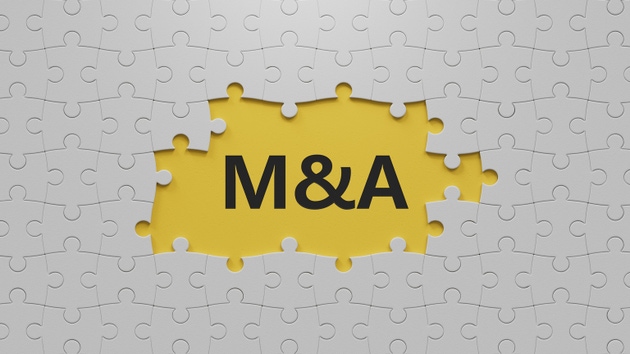Updated for tax year 2025.
New to small business taxes and all they entail? In this article, we’ll cover some of the most frequently asked small business tax questions from every type of business, such as what you can and can’t deduct on your tax return, how to save for retirement, and more.
Small business tax FAQs
Let’s dive right in to understand a few common tax questions small business owners are asking so you’re prepared when tax time rolls around.
1. What small business expenses can I deduct or write off?
As a new small business owner, this is one of the first questions you might be asking as you prepare to file your small business taxes.
To help you figure out what you can and can’t deduct on your small business income tax return, check out our ultimate list of small business tax credits and deductions you should know about this tax season. From deducting your business startup costs to writing off your vehicle expenses, this list covers 16 tax-deductible business expenses you may be able to take advantage of this year.
2. How do I calculate travel expenses when using my personal car for my business?
If you use your personal car for business purposes, you can still deduct vehicle and travel costs, but only if the expenses were used for business purposes. You may not deduct any costs related to personal use of the car.
Good bookkeeping is essential when using your personal car for business purposes. Always track your business-related miles to ensure you are getting the tax deduction you deserve!
Business owners have two options when it comes to deducting vehicle expenses:
The actual expense method: This method requires you to keep detailed records of your annual vehicle costs when using your car for business, such as gas, repairs, or tolls when traveling. You must use this method when you claim the Section 179 deduction.
The standard mileage method: Using this method, the IRS allows small business owners to deduct a set amount for each business mile that they drive. Many small business owners opt to use this method because it requires less detailed recordkeeping. For 2025, the standard mileage rate is 70 cents per mile (up from 67 cents per mile in 2024).
If you need some help doing the math, check out our Mileage Reimbursement Calculator.
3. How do I know if I qualify for the home office deduction?
To qualify for the home office deduction, you must ONLY use your home office space for business purposes. If you use the area for any personal reasons — maybe your family uses your home office for gaming, homework, or other personal uses — you cannot deduct home office expenses.
The only exceptions to this business use rule are running a home daycare facility or using your home to store inventory or product samples for your business.
4. What is the best way to deduct my business assets?
When it comes to deducting your business assets, bonus depreciation is one of the most valuable small business tax deductions offered by the IRS.
When you purchase a long-term asset for your small business, you can take advantage of bonus depreciation, which allows you to fully expense the asset’s total purchase price for the year it is placed in service. This is usually more advantageous than normal depreciation, which spreads the deduction over several years.
You can even utilize bonus depreciation if the asset’s cost exceeds your business income, creating a tax loss and saving you money.
Bonus depreciation changes
The One Big Beautiful Bill (OBBB) set bonus depreciation at 100% once again for property placed in service after Jan. 19, 2025, and before Jan. 1, 2030. Starting Jan. 1, 2030, bonus depreciation is set to expire unless new legislation extends or changes the provision. This gives you a five-year window to maximize upfront deductions on major purchases.
Section 179 deduction
Another option for deducting your business assets is the Section 179 expense deduction, which is very similar to bonus depreciation. The main difference is that Section 179 does not allow you to create a tax loss, so you can’t claim more than you made in income that year. Instead, Section 179 allows you to choose the amount you wish to expense in the first year. You can depreciate any remaining asset costs over its remaining tax life (unlike bonus depreciation, where you must claim the whole thing at once).
5. How will having a side gig affect my taxes?
If you typically file your own taxes as a W-2 worker, starting a side gig may complicate your taxes a bit. You may need to file Schedule C to report your business income and business expenses, for example. For more info on this topic, check out how to file taxes for a new side gig.
6. What is the best way to save for retirement as a small business owner?
When it comes to saving for retirement as a small business owner, there are a few options:
Traditional or Roth IRA: An individual retirement account (IRA) is easy to set up and can be used even if you are a sole proprietor and don’t have any employees. For 2025, the IRA maximum contribution limit is $7,000 (or $8,000 if age 50 or older). If you’re unsure which type of IRA to choose, we have helpful guides for both traditional IRAs and Roth IRAs, plus an article on the differences between traditional IRAs, Roth IRAs, and 401(k) plans.
SEP IRA: Simplified Employee Plans (SEP) are generally best for those who are self-employed, like a sole proprietorship, or those who only employ a few workers. The nice thing about SEP IRAs is their maximum contribution limit, which is either up to 25% of your net self-employment income after deducting self-employment tax or $70,000 in 2025 — whichever number is lower.
SIMPLE IRA: If you have fewer than 100 employees and want to set up a savings incentive match plan for them, a SIMPLE IRA is a good option. For 2025, you can contribute up to $16,500 (if you are over 50, you can contribute a bit more thanks to catch-up contributions). Contributions are deductible, and contributions made to employee accounts are deductible business expenses.
Solo 401(k) plan: If you have no employees other than your spouse, a Solo 401(k) plan may be a good option if you plan on contributing a lot to your retirement savings. You can contribute to these plans as an employee and an employer. As an employee, you can contribute up to 100% of your income or $23,500 in 2025, whichever is less. As an employer, you can additionally contribute up to 25% of your income. Your spouse can also contribute to this type of plan.
None of these retirement plans is inherently “better” than the other — it just depends on which plan would work best for your business and your personal needs.
7. How should I classify my employees?
The IRS has specific rules on classifying workers based on your business relationship with them. If you are going to have control over what the worker does and how they do their job, you should treat them as your employees. If you hire a freelancer or someone else who runs their own business and services other clients, you should classify them as independent contractors. For more info, check out When Should I Hire 1099 Contractors vs. W-2 Employees?.
Misclassifying workers can lead to the IRS charging you back taxes, interest, and penalties, so it’s essential to have a good understanding of the IRS’s common law rules and ensure you’re sending out the correct tax forms.
The bottom line
Navigating small business taxes and filing your federal income tax return as a business owner can feel overwhelming, but it’s manageable with the right knowledge. From understanding what expenses you can deduct to figuring out the best way to save for retirement, these basics are a solid starting point to understanding your business taxes better. Remember, good recordkeeping and staying up to date on tax laws can save you time and money. And, as you grow your business, TaxAct® is here to support your business tax return filing needs. Our tax preparation software can help you make the most of every tax benefit available to you.
This article is for informational purposes only and not legal or financial advice.
All TaxAct offers, products and services are subject to applicable terms and conditions.

























